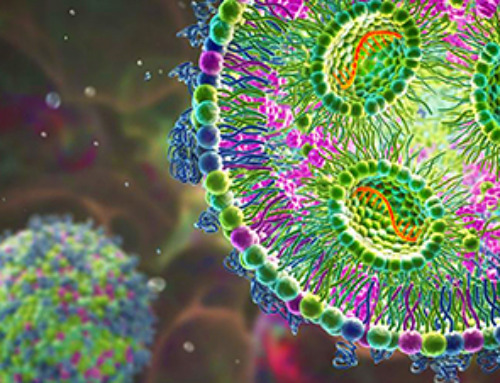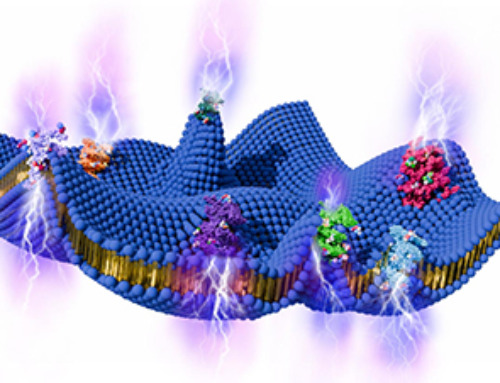The ongoing Covid-19 pandemic has yielded an unexpected advancement in the pharmaceutical industry with the approval of the first mRNA vaccines, which GlobalData expects will soon impact other indications.
This historical landmark could have significant implications, primarily in the oncology market since mRNA vaccines were being exclusively investigated in infectious and oncology diseases prior to the pandemic. Historically, mRNA vaccines were of interest in the oncology setting because multiple biomarkers could be targeted by this novel mechanism.
Given the current role of immunotherapies in oncology, mRNA vaccines pose a novel approach to trigger immune reactions against cancer cells. However, the novelty of mRNA vaccines has raised regulatory and manufacturing questions in addition to clinical limitations.
Covid-19 approvals showcase potential of mRNA vaccines
The recent approvals of Pfizer / BioNTech’s and Moderna’s mRNA vaccines in healthy patients, complemented by the historically unmatched magnitude to reach healthy patients worldwide, has helped surpass many barriers for mRNA vaccines while highlighting this novel mechanism of action. GlobalData expects this will propagate a new epicenter of interest in pursuing this drug class in oncology.
Currently, there are 44 ongoing clinical trials exploring mRNA vaccines, of which 23 are investigating infectious diseases. This includes Covid-19, which accounts for 60% of those clinical trials. Interestingly, only four out of the 44 clinical trials have made it to Phase III as a result of the sudden and immense demand to prevent the spread of Covid-19.
From an oncology viewpoint, the current pandemic will still serve to provide essential real-world data about the tolerability and effects of mRNA vaccines, since despite their approval and initial vaccination rollout, the long-term efficacy and side effects are still to be understood. As more data are gathered on these vaccines, GlobalData expects an increasing interest in bringing them into the oncology sector.
Key opinion leaders (KOLs) interviewed by GlobalData have repeatedly shown interest in novel mechanisms of action, particularly in immunotherapy. Prior to the pandemic, mRNA vaccines were one of many promising drug classes that were being explored equally with each other, with no expectation about which would be the next to impact the market. However, the sudden rise of mRNA vaccines makes it a prime candidate since there is a current spotlight on this drug class.
A supporting argument for the interest in mRNA vaccines is that out of the 21 ongoing non-infectious disease clinical trials that are exploring mRNA vaccines, all are being developed for oncology indications. Of these 21 trials, only seven are in Phase II, which demonstrates the relatively early stage of mRNA vaccines in oncology. Interestingly, the most represented company in these clinical trials is BioNTech, with seven of the 21 trials, followed by Roche/Genentech with three clinical trials and Moderna Inc with two clinical trials.
Image Credit: Shutterstock
Post by Amanda Scott, NA CEO. Follow her on twitter @tantriclens
Thanks to Heinz V. Hoenen. Follow him on twitter: @HeinzVHoenen
News
Nanomedicine in 2026: Experts Predict the Year Ahead
Progress in nanomedicine is almost as fast as the science is small. Over the last year, we've seen an abundance of headlines covering medical R&D at the nanoscale: polymer-coated nanoparticles targeting ovarian cancer, Albumin recruiting nanoparticles for [...]
Lipid nanoparticles could unlock access for millions of autoimmune patients
Capstan Therapeutics scientists demonstrate that lipid nanoparticles can engineer CAR T cells within the body without laboratory cell manufacturing and ex vivo expansion. The method using targeted lipid nanoparticles (tLNPs) is designed to deliver [...]
The Brain’s Strange Way of Computing Could Explain Consciousness
Consciousness may emerge not from code, but from the way living brains physically compute. Discussions about consciousness often stall between two deeply rooted viewpoints. One is computational functionalism, which holds that cognition can be [...]
First breathing ‘lung-on-chip’ developed using genetically identical cells
Researchers at the Francis Crick Institute and AlveoliX have developed the first human lung-on-chip model using stem cells taken from only one person. These chips simulate breathing motions and lung disease in an individual, [...]
Cell Membranes May Act Like Tiny Power Generators
Living cells may generate electricity through the natural motion of their membranes. These fast electrical signals could play a role in how cells communicate and sense their surroundings. Scientists have proposed a new theoretical [...]
This Viral RNA Structure Could Lead to a Universal Antiviral Drug
Researchers identify a shared RNA-protein interaction that could lead to broad-spectrum antiviral treatments for enteroviruses. A new study from the University of Maryland, Baltimore County (UMBC), published in Nature Communications, explains how enteroviruses begin reproducing [...]
New study suggests a way to rejuvenate the immune system
Stimulating the liver to produce some of the signals of the thymus can reverse age-related declines in T-cell populations and enhance response to vaccination. As people age, their immune system function declines. T cell [...]
Nerve Damage Can Disrupt Immunity Across the Entire Body
A single nerve injury can quietly reshape the immune system across the entire body. Preclinical research from McGill University suggests that nerve injuries may lead to long-lasting changes in the immune system, and these [...]
Fake Science Is Growing Faster Than Legitimate Research, New Study Warns
New research reveals organized networks linking paper mills, intermediaries, and compromised academic journals Organized scientific fraud is becoming increasingly common, ranging from fabricated research to the buying and selling of authorship and citations, according [...]
Scientists Unlock a New Way to Hear the Brain’s Hidden Language
Scientists can finally hear the brain’s quietest messages—unlocking the hidden code behind how neurons think, decide, and remember. Scientists have created a new protein that can capture the incoming chemical signals received by brain [...]
Does being infected or vaccinated first influence COVID-19 immunity?
A new study analyzing the immune response to COVID-19 in a Catalan cohort of health workers sheds light on an important question: does it matter whether a person was first infected or first vaccinated? [...]
We May Never Know if AI Is Conscious, Says Cambridge Philosopher
As claims about conscious AI grow louder, a Cambridge philosopher argues that we lack the evidence to know whether machines can truly be conscious, let alone morally significant. A philosopher at the University of [...]
AI Helped Scientists Stop a Virus With One Tiny Change
Using AI, researchers identified one tiny molecular interaction that viruses need to infect cells. Disrupting it stopped the virus before infection could begin. Washington State University scientists have uncovered a method to interfere with a key [...]
Deadly Hospital Fungus May Finally Have a Weakness
A deadly, drug-resistant hospital fungus may finally have a weakness—and scientists think they’ve found it. Researchers have identified a genetic process that could open the door to new treatments for a dangerous fungal infection [...]
Fever-Proof Bird Flu Variant Could Fuel the Next Pandemic
Bird flu viruses present a significant risk to humans because they can continue replicating at temperatures higher than a typical fever. Fever is one of the body’s main tools for slowing or stopping viral [...]
What could the future of nanoscience look like?
Society has a lot to thank for nanoscience. From improved health monitoring to reducing the size of electronics, scientists’ ability to delve deeper and better understand chemistry at the nanoscale has opened up numerous [...]





















